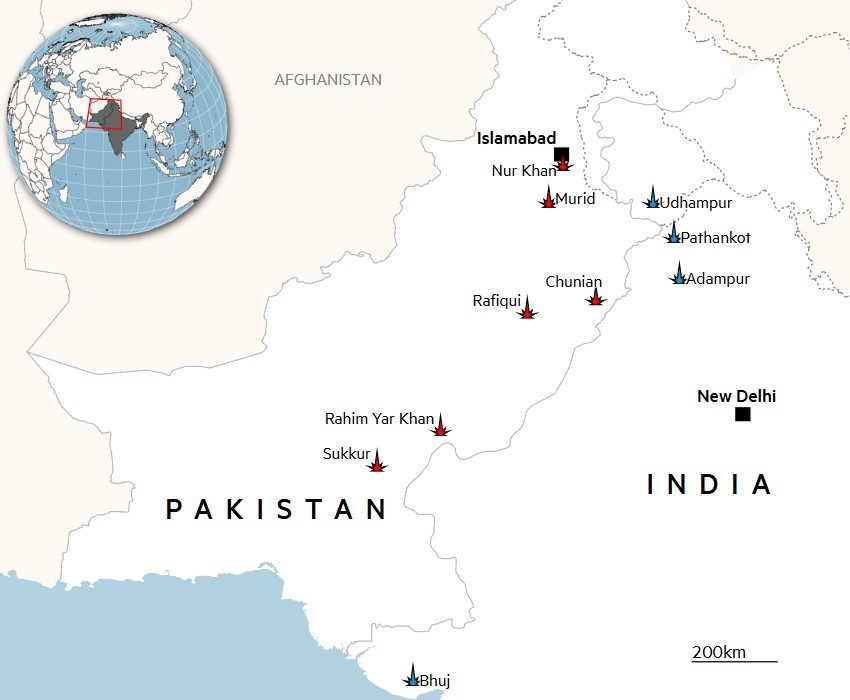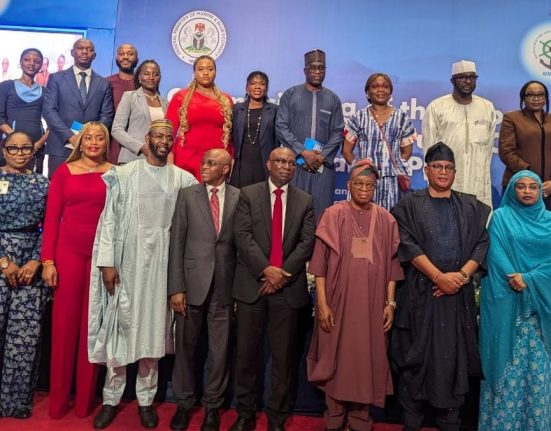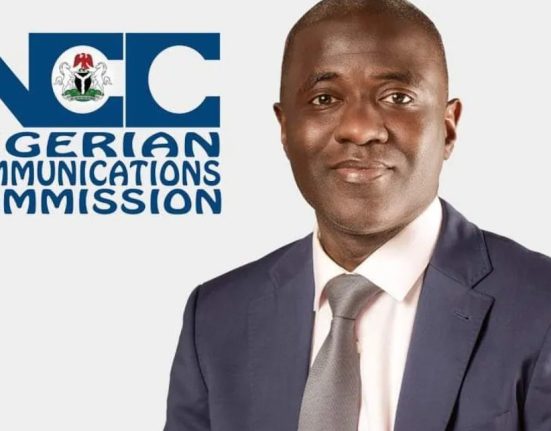
By Abdulfatah Babatunde
Islamabad, May 10, ’25 (TNZ) In what appears to be the most serious military confrontation between the two nuclear-armed rivals in decades, Pakistan and India have escalated their conflict to alarming levels.
As of Saturday, both nations have exchanged missile strikes across their borders, raising global concerns about the possibility of full-scale war in South Asia. For Nigerians, this developing crisis has significant implications for our economy, diaspora communities, and regional stability.
The current hostilities began on April 22 when 25 Indians and a Nepali citizen were killed in a mass shooting at Pahalgam, a popular tourist destination in Indian-administered Kashmir. India promptly accused Pakistan of backing the militants responsible for the attack, a claim that Islamabad has vehemently denied.
This incident triggered a chain of military responses that has now pushed both nations to the brink of war, reminiscent of past conflicts over the disputed Kashmir region that has been a flashpoint since both countries gained independence from British colonial rule.
According to Financial Times, by Wednesday, India had launched what it described as targeted air strikes against “terrorist camps” in Pakistan-administered Kashmir. The contested territory has been divided between the two countries since 1947, with both claiming it in its entirety.
These initial strikes marked a serious escalation, breaking years of uneasy peace between the nuclear neighbors. For Nigerians with business interests or family connections in either country, the situation became immediately concerning as international airlines began reconsidering flights to the region.
Pakistan’s military response has been swift and significant. On Saturday, Pakistan announced the launch of Operation Bunyān Mārsūs, a name derived from a Quranic phrase meaning “Iron Wall” – signaling the country’s resolve.
Military officials confirmed strikes against strategic Indian targets, including a storage site for India’s supersonic BrahMos missiles in Punjab state and airfields in Udhampur and Pathankot. These are not symbolic targets but rather key military installations, indicating Pakistan’s willingness to directly challenge India’s military capabilities.
The situation deteriorated further when India claimed Pakistan was moving troops toward their shared border, raising the possibility of ground operations in addition to the aerial bombardments. Pakistan’s military has notably declined to comment on these allegations, creating additional uncertainty about their intentions.
For the estimated 50,000 Nigerians living and working across both countries, particularly students in Indian universities, this development raises serious safety concerns that our diplomatic missions in both nations must urgently address.
In a potentially positive development, US President Donald Trump announced on his Truth Social platform that both countries had “agreed to a full and immediate ceasefire” following “a long night of talks mediated by the United States.” He congratulated both nations for using “Common Sense and Great Intelligence.”
Read Related News:
- India, Pakistan exchange list of prisoners
- Indian Parliament suspends 14 lawmakers over unruly conduct
- Pakistan raises alarm over monsoon rains, floodings
- Air pollution: Indian Govt. shots primary schools in N/Delhi
- Pakistani rupee drops to record low against dollar
However, as of press time, neither India nor Pakistan has officially confirmed this ceasefire, leaving the situation ambiguous and tense. Nigeria’s Ministry of Foreign Affairs should be monitoring these developments closely, particularly given our substantial trade relationships with both countries.
The conflict carries significant economic implications for Nigeria. India remains one of our largest trading partners, with bilateral trade exceeding $14 billion annually. Many Nigerian businesses import pharmaceuticals, machinery, automobiles, and textiles from India, while we export crude oil, cashew nuts, and other commodities.
Similarly, our trade with Pakistan, though smaller, has been growing steadily in recent years. Any prolonged conflict would disrupt these vital trade relationships and potentially drive up prices for Nigerian consumers already battling inflation.
For Nigeria’s energy sector, the crisis presents both challenges and opportunities. Global oil prices have already responded to the conflict, rising by several percentage points as markets react to instability in a region that is critical to global energy supply chains.
While this may temporarily boost Nigeria’s oil revenues, the longer-term disruption to global trade and investment would likely outweigh these short-term gains. Our government should be preparing contingency plans for various scenarios as the situation unfolds.
The diplomatic community in Abuja has been unusually quiet about the crisis, despite both India and Pakistan maintaining active embassies in Nigeria. Our government should be pressing both nations to exercise maximum restraint while offering Nigeria’s services as a neutral mediator.
As Africa’s most populous nation and a fellow Commonwealth member with both countries, Nigeria occupies a unique position from which to appeal for peace and dialogue over military confrontation. Our own experiences with internal conflict give us valuable insights that could contribute to de-escalation efforts.
As we watch events unfold, Nigerians should remain vigilant about potential impacts on our economy, diaspora citizens, and regional stability. The lessons from this crisis are clear: even distant conflicts can have immediate consequences for our national interests.
Our government, business community, and civil society must work together to monitor the situation closely and prepare appropriate responses. Most importantly, we must add our voice to international calls for peaceful resolution, as another war between these nuclear powers would have devastating consequences far beyond South Asia. (TNZ)

Do you have a flair for Citizenship Journalism? Share stories of happenings in your area with TheNewsZenith on WhatsApp: +2348033668669. For more scintillating news, visit our website: www.thenewszenith.com. Also follow us on YouTube: www.youtube.com/@thenewszenithOnline, Facebook: www.facebook.com/@thenewszenithonline & Tiktok: www.tiktok.com/@thenewszenithonline







